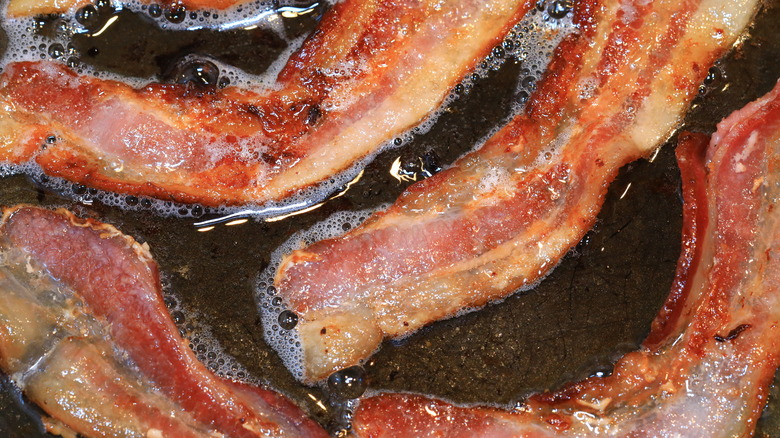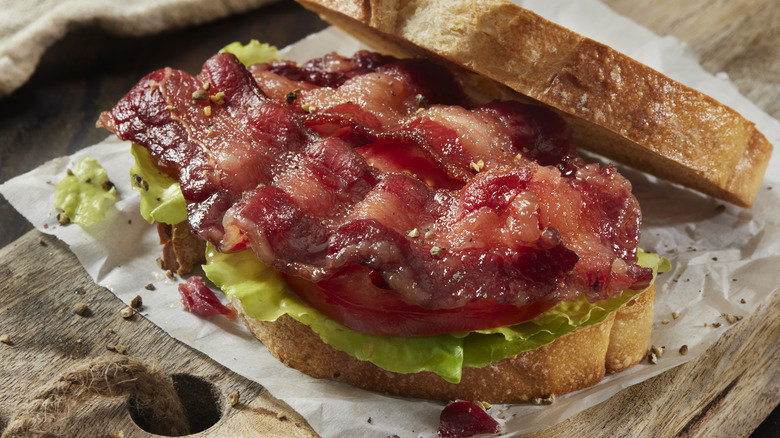Beef Bacon Vs Pork Bacon: What's The Flavor Difference?
From streaky bacon to Canadian bacon to rashers, carnivorous-minded foodies know that the word "bacon" can refer to myriad foods. Today, we're exploring two different types: beef and pork, which are both cured and smoked to prepare, and can both be pan-fried or oven-baked to cook. This, however, is roughly where their commonalities end. Due to their unique tastes and textures, foodies probably wouldn't want to use these types of bacon interchangeably in their recipes.
Pork bacon is made from pork belly, and characterized by crispy edges and melt-in-your-mouth marbling. It's rippled with long, parallel layers of fat, which give the strongly porky-tasting meat a slightly sweet flavor. That sweetness nowhere to be found in rich, lean, smoky beef bacon.
Beef bacon is made from cured, smoked beef belly (aka navel brisket), the same cut that pork bacon comes from on a pig. It can also be made from the short rib, brisket, or round, but these cuts have comparatively less consistent marbling. Unlike pork bacon's thin, crispy slices, beef bacon is typically sliced a tad thicker, yielding a toothier chew in conjunction with the meat's comparative leanness.On the palate, beef bacon is robust and deep, presenting a beefy, meaty taste and a hearty mouthfeel. The flavor is reminiscent of smoked brisket meat or ribs, plus whatever seasonings are used to cure the meat (typically a blend of salt, sugar, and nitrates, the same as is used to cure pork bacon).
Beef bacon is robustly smoky and chewy, while pork bacon is fattier, sweeter, and crispier
Beef bacon tastes smoky in a meatier, more robust way than thin, crispy pork bacon, but one isn't necessarily better than the other; they're just different meats with unique profiles. Since both types are cut directly from the belly and cured, beef and pork each fit the bill for "true bacon" — unlike turkey bacon, which is made from an amalgam of turkey parts compressed together and shaped (hungry yet?). Whichever type you prefer, we always recommend making more bacon than you think you'll need at a time.
Still, respective flavor and texture characteristics aside, for foodies prioritizing healthier options, beef bacon does offer some health advantages. Due to the curing process, both beef and pork bacon pack considerable sodium, but beef bacon features around 33% more protein and 28% less fat. Pork bacon, by contrast, features a ratio of ½ to ⅔ fat to meat and 8.5% protein by weight. Beef bacon is also accessible for halal foodies, and the lower fat could be preferable for folks with specific dietary needs. Relative-newcomer beef bacon is becoming increasingly available in grocery stores (albeit a tad more expensive than its porky counterpart), but it could still warrant a trip to your local butcher shop to track down.

